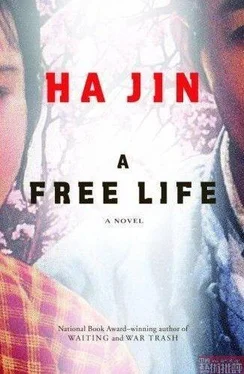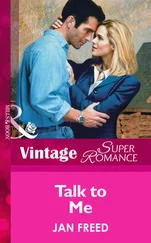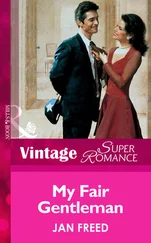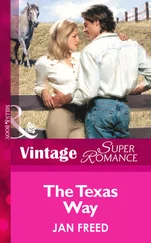"But I'm nobody in America. How could I help him hold an art show?"
"I'm not blaming you, Nan. He's just pigheaded, but he's an old friend I don't want to lose. So don't go out during the day in case people in the neighborhood see you, because then Uncle Zhao will know you're back."
"All right, I'll remain indoors." Nan was tired and sleepy, preferring to stay home anyway.
" If you want to go out, use the back alley and wear sunglasses. Don't go by the front gate."
"You mean the alley is still there?"
"Yes, nothing really changed except for people getting older."
At breakfast Nan asked about his brother and sister. His parents said their family was lucky that neither of Nan 's siblings was out of work. There were so many unemployed people nowadays that pickpockets were everywhere in town. Nan had better be careful with his wallet on buses and in shops, especially in movie theaters, where the darkness could facilitate theft. His mother also told him that his younger brother, Ning, was addicted to gambling. Sometimes Ning would go out for a whole night. His wife griped about his bad habit all the time, but he wouldn't change. She had even threatened to leave him; still he wouldn't stop.
"Why is he like that?" Nan asked, remembering his brother fondly.
"Depressed."
"What? Depressed?"
"Yes. He just can't take heart from anything," chimed in his father.
Nan felt it strange that Ning, formerly a cheerful young man, had degenerated like that. Before he had left China, Nan had never heard the word depressed, which his mother now used like an everyday term.
Nan gave his parents each five hundred dollars, saying he'd had to leave Atlanta in a hurry, so was unable to bring them any gifts. At the sight of the green banknotes, his parents beamed. His father picked up a crisp twenty from the wad of cash and narrowed his weary eyes to observe it against the sunlight streaming in through the window, as if to ascertain its genuineness. "This is twenty dollars," he said. "I never saw American money before. " "It's real." Nan nodded.
"I've never thought the almighty dollar looks so ugly." His mother interjected, "What a silly thing to say. No money looks ugly."
The old man chuckled and sucked in his breath. "That's true. Just one of these banknotes can buy me a hundred noodle meals." He turned to Nan. "Now tell me, how much can your restaurant make on a good day?"
"Around a hundred?"
"Five of this!" He fluttered the twenty in his hand. "No wonder people say America is the richest land." The wrinkles around his snub nose turned into grooves as he grinned and clucked his tongue.
Nan didn't say more. Instead, he went to wash and brush his teeth. Then he undressed, got into bed, and slept eight hours on end.
TOWARD DUSK Nan went out to the riverbank with his brother, Ning. He pushed his father's Phoenix bicycle through the back alley lined with piles of garbage, but when he came out of it and got on the bike, he couldn't ride it steadily anymore, and pedaling zigzag, almost ran into a young couple. His brother, tall and rawboned, shook his head, crying, "Use the bell!" Squeals of laughter rang out around them.
Nan dismounted instead, and together they walked to the Song-hua River. They turned onto Central Boulevard, which stretched north about a mile, all the way to the riverside. Nan had once been fond of this cobbled street built by the Russians in the nineteenth century, but somehow it was nothing extraordinary now. He felt the street rather confining, probably owing to the numerous business signs overhanging the buildings.
The Wu brothers entered the plaza that formed the center of Stalin Park, in the middle of which stood a slender monument erected in memory of the victory over a huge flood in 1957. A structure supported by stone columns, resembling a giant horseshoe, curved behind the monument. Somehow this piece of architecture that had impressed Nan greatly for many years now looked flimsy, no longer giving any feeling of magnitude. The two brothers went deeper into the park and reached the waterside. The riverbank was different from what Nan had remembered. This place had once been like a park, filled with flowers and trees, but now most of the plants were gone and there were booths and kiosks everywhere, selling foods, fruits, drinks, souvenirs. People were bustling around with their purchases in string bags carried in their hands or slung over their shoulders. There were also flocks of tourists strolling about, and some were cracking spiced watermelon seeds and spitting the shells on the ground. Not far away to the east rose a cluster of tall residential buildings that blocked the view of the grassland. In fact, the riverbank was now like a marketplace. The ground paved with concrete slabs was strewn with melon rinds, ice cream cups, crushed eggshells, Popsicle sticks and wrappers, cigarette butts. Nan and Ning leaned against the guardrail atop the embankment, watching a houseboat wobbling near the other shore, with a grapnel dangling over its stern and with foamy wavelets tumbling in its wake. The surface of the water had shrunk considerably, only about two hundred yards wide now, revealing a broad band of sandy beach. "Where are all the ships?" Nan asked his brother.
" There has been a drought. The water is too shallow for the ships to come up here." Ning licked his thick lips. His baby face, narrow at the top and wide at the bottom, puffed up a little, his gaze focused on a moored rowboat.
" The river has changed so much. I never thought it was so meager," Nan said. He had dreamed of the Songhua many times and always seen it as an immense body of water like a lake. Now he guessed that the Hudson or Lake Lanier must have mingled with this river in his dreams.
"You should come and see what it's like here in the morning," said Ning. "It's thronged with people, like a sports ground. People exercise and dance everywhere."
"Didn't they build an amusement park over there some years ago?" Nan pointed at the wooded land in the middle of the river called Sun Island, over which a biplane was flying slowly, bobbing like a giant dragonfly caught in the wind.
"Yes, but if I were you I wouldn't go there. It looks better from here. It's too crowded there, just a tourist trap."
Indeed, viewed from this shore, the island was lovely, with picturesque buildings and bright-colored houses. It had been covered by bushes twelve years before. In his late teens Nan had often swum across the channel in the afternoons and napped on the warm beach that was now occupied by pavilions, boathouses, and a long platform on stilts which must have been a pier. He told Ning, "I thought I'd go and see the island, but there's no need now. The water is so narrow I feel I can wade across."
"Like this river, China has run out of strength. It's already rotten to the core. Brother, you made the right choice to stay in America." Ning took a swat at a horsefly hovering around his head but missed it.
" Life is hard there too," said Nan.
"Still, you have hope there, don't you?"
"Idon't know." Nan wanted to say "What hope?" but he held back, not wanting to upset his brother.
" Nan." Ning looked rather shy. "I'm thinking of going to Australia."
"For what?"
"To emigrate."
"That'll be very hard, Ning. It will take ages to get all the papers through. If you were a young woman, your life in Australia may be less difficult. Chinese men are often at a disadvantage compared with Chinese women in foreign countries."
"Why so?"
" Chinese women are more likely to be accepted because white males like them. Also, generally speaking, Chinese women can take more hardship than Chinese men. If you go to Australia with your wife, it'll be less difficult for her to adapt. To be honest, Minyan may not stay with you forever once you reach Australia. I've seen many broken marriages among the immigrants in America because the wives changed their hearts. I'm lucky. Pingping has been loyal to me. She can endure more suffering than I can. Without her I couldn't have survived there." He had to stop because a surge of emotion seized his heart and drove him to the brink of tears. Then it dawned on him that Minyan, his sister-in-law, might have wanted to take Ning to another country so that he'd have to give up his gambling friends here. Nan had met Minyan a few hours ago and liked her, but he didn't feel she was very reliable. She was a looker, also quickwitted. He was sure that if she and Ning went to Australia, she could make it there, whereas Ning, sensitive by nature, might get lost and lapse into his old ways, frequenting casinos and betting on horses.
Читать дальше












